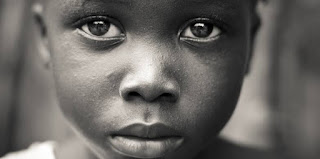Emotional abuse which can also be known as psychological or verbal abuse is a series of behaviors and actions that thwart the emotional development of children as it negatively affects their sense of self-worth.
Abuse for African children has become a norm and practice which is greatly affecting the coining of young minds in Africa.
In Nigeria, the impact of psychological abuse which has greatly influenced the capability of children and adolescents to function effectively in society has become a rising concern. see a study on ‘Gender and Paternal Psychological Abuse on Psychopathology Symptoms Among Children and Adolescents in Akwa Ibom State, Nigeria’.
Psychological Abuse is one of the hardest forms of abuse to recognize. It is often subtle and slowly affects a child’s self-esteem. This abuse may expose a child to behaviors that result in psychological trauma which reflects constant anxiety, chronic depression, and post-traumatic stress disorder.
The voice you use on a child eventually becomes her inner voice
Chinenye Chukwumezie
SIGNS OF EMOTIONAL ABUSE ON CHILDREN
Unlike physical abuse which can be Identified by bruises or broken bones, emotional abuse often has its mark embedded in the minds of the abused.
This form of abuse involves a child growing up in a dominating and controlling environment. Children who face such have this abuse meted out to them by the people closest to them, ranging from their parents or wards, caregivers, close relations, and teachers.
It is important to note that signs of psychological abuse manifest differently in children which is mainly influenced by their age. Most children will rather keep mute about these abuses but their signs will always give them away.
Below are some of the signs to look out for in an emotionally abused child:
- Lack of confidence in self
- Constant anxiety
- Having a negative relationship with parents or caregivers
- Absence of essential social skills
- Timidity
- Struggle to control emotions
- Unexplained aggression especially towards fellow children
- Quest for approval from grown-ups
- Desperate seek of affection from adults.
- Loss of interest in social activities
- Depression especially for older children
- Intentional quest to hurt self or others.
- Declining performance in school
- Delay in meeting developmental milestones.
You may also like ‘Child Development – Facts & Expectations’
Emotional abuse being meted by parents to children has been tagged to so many factors and reasons ranging from financial problems, emotional and psychological distress. These factors if not checked or regulated can transform into abuse. Some Examples of Emotional Abuse include:
- Limited or no show of love from parents/wards or caregivers.
- Constant scream/scare from parents and caregivers.
- Child exposure to domestic violence at home
- Withholding of necessary praise when a child makes little effort.
- Use of abusive language by parents or caregivers.
- Asking a child to lie
- Having unrealistic expectations of a child
IMPACT OF EMOTIONAL ABUSE
When the topic of abuse is discussed, what comes to mind is mostly physical abuse. We sometimes expect to see a broken bone or a scar to agree that abuse has been meted.
Emotional abuse on the other hand can happen alongside physical abuse, and it impacts more on the abused.
Read Also: “Some Fun Activities to Have With Your Kids This Holiday”
Children who are not physically abused, but are constantly emotionally abused will experience it’s a long-lasting effect in the process of their emotional development.
Some of these impacts include:
- Chronic anger problem
- Inability to keep or maintain healthy relationships
- Persistent emotional control over other individuals
- Mental health disorder
- Abuse of drugs and alcohol
- Depression and anxiety
- Difficulty expressing self
- Inability to understand and regulate emotions
- Suicidal thought as well as attempts
- Low self-esteem and self-worth
- Delayed speech
- Anti-social behavior
- Unhealthy sexual behaviors


0 Comments